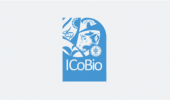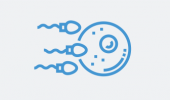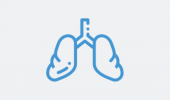Silabus S3 Biosains Hewan
- Last modified at 16 March 2023
Brief Description of Courses Doctoral Program of Animal Biosciences
BIO701 Scientific Communication and Ethics in Biology 2(2-1)
This course describes how new science is being produced and communicated. Research proposal and scientific writing. Editorial corresponding with scientific journal and community. Ethics in science production and communication.
BIO702 Biology Analysis and Data Presentation 2(2-1)
This course discusses how techniques to obtain or generate biological data from molecular and cellular to ecosystems, starting from planning and designing, analyzing and interpreting correctly, as well as effectively presenting the results of the analysis in scientific reports and communication, such as dissertations, scientific presentations and posters, as well as manuscript for publication in scientific journals; techniques for making and writing scientific research proposals and dissertations are also thoroughly discussed in this course. This course is completed with structured assignments and exercises to apply the techniques to obtain, analyze and present biological data with the main results in the form of a dissertation research proposal draft, which is also enriched with the practice of making scientific presentations and posters, as well as criticizing and writing a manuscript for publication in scientific journals.
BIO703 Presentation in Scientific Forum 1(0-1)
This course is one way of communication media to improve scientific communication competencies for students at national or international scientific forums. Students must make an oral presentation at the forum. Students can present part of the results of dissertation research. Participation is proven by invitation letter and certificate.
BIO791 Writing Qualification Exam 2(0-2)
Writing qualifications for doctoral program is a form of evaluation that is compulsory for doctoral students to ensure knowledge of science as a doctoral candidate. Graduation from the qualification exam is a prerequisite for continuing academic activities in the doctoral program.
BIO792 Direct Qualification Exam 2(0-2)
Oral qualification tests for doctoral programs are a form of evaluation that is compulsory for doctoral program students to ensure knowledge of knowledge and readiness to conduct research and their eligibility as a doctoral candidate. The test was held on the campus of IPB. Graduation from the qualification exam is a prerequisite for continuing academic activities in the doctoral program.
BIO793 Colloquium for Doctoral Program 1(0-1)
The doctoral student research plan seminar is conducted as a forum for discussion forums so that research can be done well.
BIO794 Dissertation Proposal 2(0-2)
This research proposal subject requires students to draft their research plan proposals, which are complemented by a literature review.
BIO795 Research Dissertation 12(0-12)
It is the final project of doctoral students in the Department of Biology as one of the graduation requirements that includes research activities in the laboratory or in the field and writing a dissertation.
BSH796 Final Dissertation Exam 3(2-1)
A closed examination for a doctoral program is one of the stages of achieving a degree after a student has undertaken research and drafted a dissertation. The doctoral closed examination program is intended to assess the ability of prospective doctors to maintain the material contained in the dissertation. The assessment conducted includes scientific competence, method, thinking (abstraction, reasoning, deductive-inductive, analysis-synthesis), and communication competence. Students who will take closed examinations must meet the academic and administrative requirements set by the Graduate School of IPB.
BSH651 Herpetology 3(2-1)
Studying the diversity of Amphibian and Reptile groups, ranging from morphology, physiology, reproduction to molecular. The discussion was emphasized on Indonesian herpetofauna.
BSH652 Bioanthropology 3(2-1)
Study human life and its biological variations. Primate sociology. Growth, body composition and anthropometry. Adaptation and human ecology. Migration and microevolution.
BSH653 Primatology 3(2-1)
In this course, biological aspects of the Primate order are studied including anthropoid prosimians, new world monkeys, apes and humans.
BSH654 Population Genetics 3(2-1)
In this course, genetic principles are studied that affect human populations, animals, plants and microbes. The population in this case can be natural and artificial populations. An understanding of population genetics can be useful in the fields of biomedicine, law, biotechnology, molecular biology, cell biology, sociology and anthropology.
BSH655 Biology of Small Mammals 3(2-1)
Discusses the biology of small mammals based on their specific characteristics and their preferred distribution and habitat. As animals that are highly adaptive to various environments, their ecological characteristics, behavior and physiological adaptation patterns are thoroughly studied. The role, influence and utilization of these animals as both experimental animals and livestock are discussed in full.
BSH656 Zoogeography 3(2-1)
Learn the theoretical and practical basis of the distribution of animals in the dimensions of space and time, patterns of distribution of animals in Indonesia's geographical area and speciation mechanisms.
BSH657 Biology of Arthropods 3(2-1)
The Arthropod Biology Lecture discusses arthropod megadiversities that have been successful in evolution by mastering various types of habitats; Systematics, molecular and morphology of Ecdysozoa, Panartropoda (Onychopora, Tardigrada) and Arthropods (Chelicerata, Crustacea, Uniramia); Arthropod physiology: life cycle, ecdysis, hormones, communication, habitat and arthropod behavior; the role of arthropods for humans.
BSH658 Biology of Beneficial Insects 3(2-1)
This course discusses insect biology that is beneficial to humans and the environment. The lecture begins with the introduction of insect orders as a basis for understanding in the discussion of useful insects. In the following discussion the diversity and products of useful insects are discussed, such as soil-dwelling and scavenger insects, predatory and parasitoid insects, and pollinator insects. At the end of the lecture, it was discussed about insect products in the industry (apiculture and sericulture). This course is completed with practicum.
BSH659 Exploration of Habitat 3(2-1)
This course discusses habitat types, biogeography and biodiversity (diversity, description, models, and analysis). Further discussion of the sampling method, research design, data analysis and population analysis. In this lecture also discussed procedures for admission of herd admission research, permit to collect and transport specimens, and management and evaluation of habitats.
BSH65A Biology of Pollinator Insects 3(2-1)
This course begins with a discussion of insect-plant coevolution, shape, structure, flower advertisement, and nutrition of flowers. Furthermore, the lecture discusses the diversity of pollinators (including vertebrate and abiotic pollination), foraging behavior and environmental factors, pollination efficiency, flower constancy, and foraging and thermoregulation, pollination energy and data analysis. This course is completed with practicum.
BSH65B Somatometry and Somatoscopy 3(2-1)
Studying measurements of the human body including its implications for life history and primate evolution (including humans).
BSH65C Molecular Evolution 3(2-1)
The description of macromolecular evolution concerns the speed and pattern of changes that occur in genetic material (DNA sequences, etc.) and its binding products (proteins, etc.) during the time of evolution and some of the mechanisms responsible for these changes. Reconstruction of the evolutionary history of genes and organisms (phylogeny molecular), the use of DNA technology for the purposes of study of evolution and genetic diversity and genetic engineering.
BSH65D Biology of Mollusca 3(2-1)
Studying various aspects of Mollusk biology, including its origin, diversity, anatomy, morphology, physiology, and its relationship to the abiotic and biotic environment, including humans.
BSH65E Conservation of Tropical Animals 2 (2-0)
This course aims to explore the basic principles of wild animal conservation in the tropics, especially towards endemic species in Indonesia, management of wildlife communities and the complexity of sustainable wildlife conservation in Indonesia. This course integrates the concepts and principles of biological, ecological, wildlife management and human dimensions (social, cultural, economic, and political aspects). Students are trained to be able to play a professional role in identifying, collecting, preserving, testing and analyzing problems in Indonesia to formulate sustainable conservation policies.
BSH661 Methods of Animal Observation 3(2-1)
This course presents material on methods of observing behavior in nature such as scan sampling, ad libitum and focal animal sampling, animal behavior as interactions between themselves and the environment, approach to methods related to research related to stereotyped, acquired and perception behavior.
BSH662 Biology of Social Insects 3(2-1)
Social Insect Biology Lecture discusses the biology of bees, ants and termites which have very different biological characteristics compared to solitary insects. In terms of physiology, social insects have many glands in the body that produce various types of pheromones. The pheromone, among others, functions: uniting thousands of members of the colony to form superorganisms, defending the colony, and recruiting the members of the colony in search of food. The maintenance of children in social insects that form the caste system. Other specific characteristics of other social insects are the presence of polyandry and polygyny as well as the complex haplodiploid genetic system.
BSH663 Indigenous Physiology 3(2-1)
This course discusses local fauna resources and their interactions with the culture of the local community; animal ecophysiology and the importance of its use; adaptation tendencies of animal physiology, anatomy and behavior; conservation culture; the use of animals in ceremonies, health, economics and art.
BSH664 Neuroscience 3(2-1)
This course discusses the development, structure and function of the nervous system of animals, especially insects and mammals. The main scope of the discussion is on the regulation of molecular and cellular levels, accompanied by several examples of system-level regulation and behavior, as well as the role of neuroscience in the biomedical field.
BIO751 Methods of Comparative 3 (2-1)
Studying ways of drawing conclusions in biological research. Biology as factual science. Biological characteristics: a window into the natural laws that control life. Homology and analogies. Experiment: confirmation vs. falsification. Syllogism and parsimony principle.
BIO752 Unity in Diversity of Human 3(2-1)
Study the diversity of human history with the aim of understanding what it means to be human. Aspiration, altruism, and prosperity. Migration, demographic genetics, and microevolution. One Earth: is that enough?
BIO753 Mollecular Ecology 3(2-1)
In this course, several aspects of community and animal population are studied using a molecular approach. The lecture began by discussing various molecular methods ranging from techniques for collecting and storing samples, analysis of protein polymorphisms and DNA polymorphisms. In addition, several geographic distribution phenomena of animals related to time and space will be discussed.
BIO754 Genome Analysis 3(2-1)
Discuss the genome organization and structure, genome breakdown and decomposition with various techniques (restriction enzymes, sequence analysis, hybridization, chromosome walking, etc.), find genes in large genomes, various ways of mapping the genomes of humans, plants, and animals, locus analysis quantitative character encoding (QTL) locations, and analysis of nuclear DNA and cytoplasmic DNA.
BIO761 Philosophy in Animal Adaptation 3(2-1)
This course presents material on structural adaptation, physiology, and behavior (including culture) in animals based on zoo- and biogeographic distribution in altitude or latitude, interactions between animals - plants - microbes - environment, the body's ability to defend against pathogens, speciation processes and extinction , and human roles: genome editing to in situ conservation.
BIO762 Experimental Behaviour 3(2-1)
This course presents material on behavioral experiments using classical and operant conditioning, experimental design, behavioral paradigms, the relationship between stimuli and responses, probes for studying behavior, sensory and motor neurons.
Results of stakeholder satisfaction survey to this study program services :
1. Lecturer and Staff Satisfaction (link)
2. Research Partners Satisfaction (link)
3. Student Satisfaction (link)
4. Alumni satisfaction (link)













































.png)








Login
LoginSitemap
map